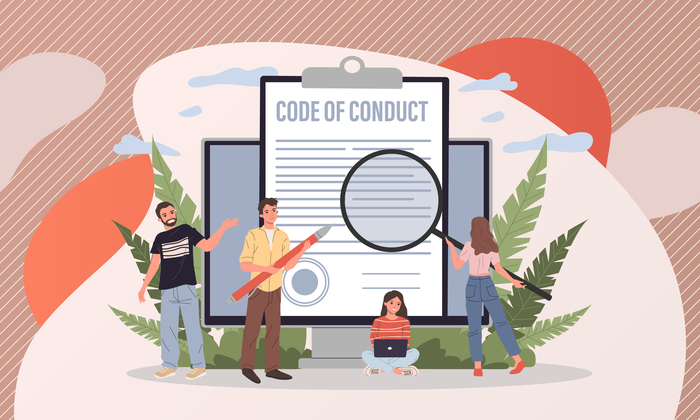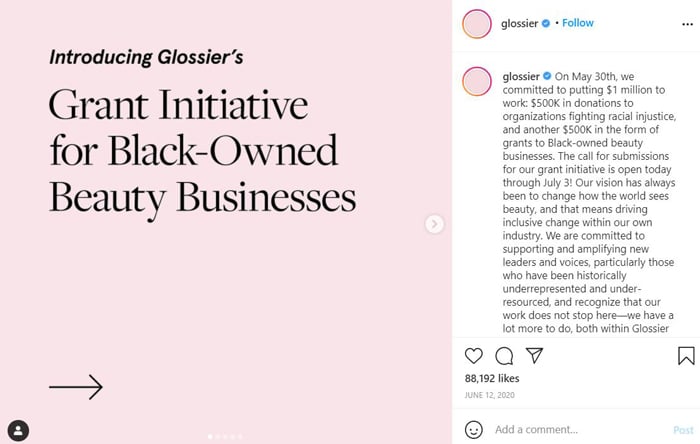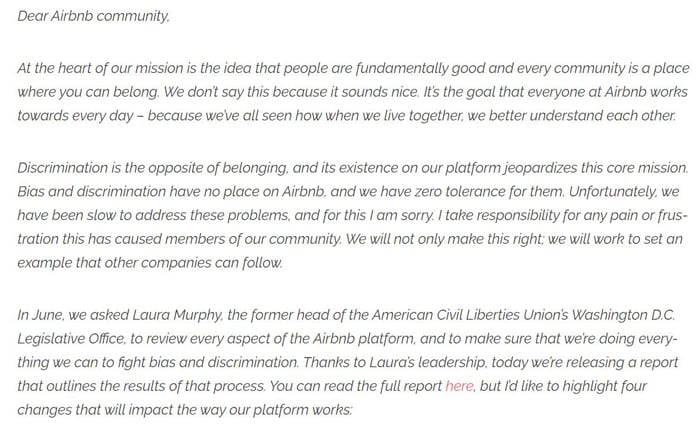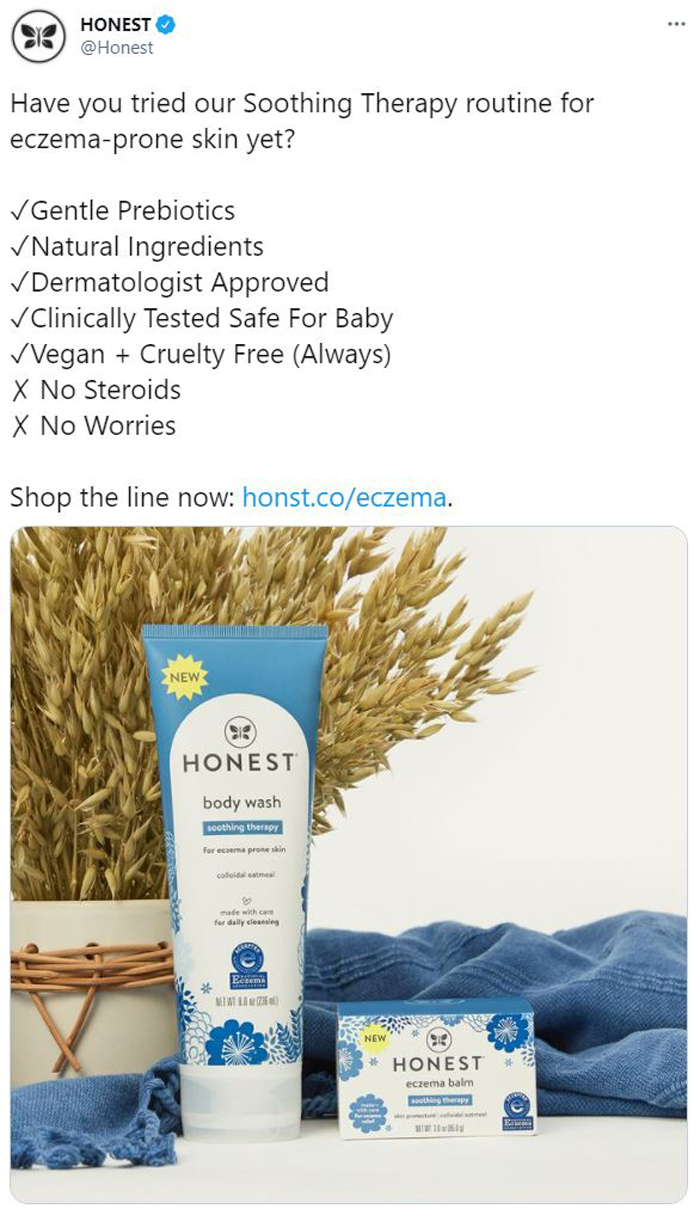
How important are marketing ethics when it comes to your purchase decisions?
If you are like most consumers, ethics matters a lot.
Consumers are attracted to brands that promote sustainability, environmental causes, and social responsibility. Not surprisingly, we’re drawn to brands that bring some good into the world.
Promoting good causes and following marketing ethics can help your brand attract much-needed attention and drive ROI for paid ads.
What are the most crucial marketing ethics you should follow? How will you integrate it with your paid campaigns?
Let’s begin by discussing the basics of marketing ethics.
What Are Marketing Ethics and Why Are They Important on Social Media?
Marketing ethics means having principles for your paid campaigns.
It is a philosophy focused on using values like honesty, fairness, and social responsibility to build quality relationships with consumers.
It requires companies to build campaigns and make decisions based on a moral perspective (i.e., whether a move is “morally good”) and a business perspective (i.e., whether it will generate the desired ROI).
Factoring marketing ethics into your paid campaigns isn’t just a good idea, it’s good for business.
Take a look at these interesting numbers:
- 70 percent of North American consumers believe it is important for brands to be sustainable and eco-friendly.
- Barrons also reports 35 percent of consumers are willing to pay more to purchase eco-friendly products.
- Statista reports 61 percent of American consumers value diversity in ads.
- 45 percent of consumers under the age of 34 are willing to conduct repeat business with an LGBTQ+–friendly company.
Consumers respond to ethical brands, and it could even boost your overall image. However, marketing ethics also sparks a lot of debate because the concept of “right” and “wrong” can be subjective.
There are also cultural, ethical, and social aspects marketers must consider. Brands could face backlash from consumers who claim ads are “offensive,” “insensitive,” or “deceptive.”
5 Marketing Ethics to Follow for Paid Campaigns
I’ve seen many ethical brands and campaigns in my career, and I can tell you integrating ethical marketing works when it’s done right. You can win customers and help a worthy cause at the same time. It’s the perfect win-win-win situation!
Now here are the top five marketing ethics you should use to drive success in paid campaigns.
Transparency in Marketing Ethics
In the age of social media, people demand brands to be transparent.
They want to learn how the product is made, how materials are sourced, where they are made, brand affiliations, and everything about the brand and its products. The more information people have about the product, the more impact it will have on their decision-making process.
According to Label Insight, 94 percent of consumers are likely to be loyal to transparent brands. Furthermore, 56 percent remain loyal to a brand if it offers complete transparency.
Brand transparency proves a brand is genuine and trustworthy. Not only can it attract more people, but it can also lead to a higher rate of customer retention.
To be transparent, brands should release verifiable information about products and disclose affiliations. This can be done in paid social campaigns by featuring a behind-the-scenes look of your offices, sharing data, and being transparent about your products and services’ capabilities.
F&B brand Panera believes people have a right to know more about their food. That’s precisely why the brand launched the “Food Interrupted” series to boost transparency through interviews with food industry experts.
The video series educates viewers about plant-based diets, animal welfare, clean eating, and ingredient transparency. At the same time, they increased brand credibility and consumer confidence.

How to Avoid Crossing the Line
Keep in mind transparency will backfire if you make deceptive claims. If you can’t back something up, then don’t claim it’s the truth. Your business will face a PR disaster once it’s caught in the act.
We all want to avoid being labeled as a “hypocrite” or “deceptive.” Claiming you have specific qualities might earn brownie points with customers, but it’s not worth the backlash if it isn’t true.
Social Responsibility in Marketing Ethics
Social responsibility entails enacting positive change by helping people in need or supporting good causes. When a brand is known to stand up for what’s right, it fosters trust and loyalty from customers.
They say you must be the change you wish to see in the world. As individuals, we often use small acts to support the causes we love.
In contrast, businesses—especially large corporations—have more power and resources to enact positive change. That’s why brands that make an effort to promote good are more likely to gain widespread support and popularity.
Here are some popular causes promote social responsibility:
- saving the environment
- supporting charitable institutions
- quality labor policies
- volunteering
- sustainable and eco-friendly products
How do you integrate this into your social campaigns? Consumers want to see how a brand is making an impact. Allot a portion of sales to donations, participate in volunteer work, or
stand up against unjust policies.
For example, Glossier supported #BlackLivesMatter by donating $500,000 to provide grants to Black-owned beauty businesses and using the other half for organizations fighting racial injustice.

We all make mistakes, and the same is true for brands. Hence, social responsibility also means owning up to the mistakes you make.
When Airbnb came under fire for discrimination and racial profiling, Airbnb CEO Brian Chesky sincerely apologized and introduced solutions to combat it.

They also created a “We Accept” video to highlight their support for diversity and inclusion.
How to Avoid Crossing the Line
Businesses looking to embody social responsibility must avoid making insensitive comments or statements regarding race, religion, politics. Once you claim you stand up for a specific cause, you can’t take it back. Not living up to your principles violates marketing ethics and puts your business in a bad light.
Fairness in Marketing Ethics
Fairness is about representing products or services accurately and weighing the benefits of your buyer’s needs and your own needs as a profit-oriented company.
In simple terms, it could also consider moral principles when engaging in business.
When marketers promote a new product, the information should be accurate and free from deceptive claims. If a product is harmful to kids, then it’s best to include a warning.
Consumers may also prefer brands that treat workers fairly or launch cruelty-free products. Supporting brands abiding by fair trade practices empowers both employees and their communities.
For example, Patagonia is a passionate advocate of fair trade. They ensure workers have access to living wages and quality working conditions.
Although consumers pay premium prices for their fair trade products, the money is used to fund community projects, child-care centers, and health-care programs.
In the video “Fair Trade: The First Step” the brand launched a detailed documentary featuring the quality of life of its workers.
To reduce its environmental impact, Patagonia also encourages consumers to reuse and repair its products. They even host Worn Wear events across the country where consumers can get their items fixed for free.
On their Worn Wear Instagram page, you’ll find pictures of these events and instructional videos so users can fix their Patagonia products themselves.

How to Avoid Crossing the Line
Highlighting fairness involves giving behind-the-scenes posts of your daily operations or your company’s decision-making process. While we want to impress consumers, it’s equally important to keep it real. Rather than a scripted commercial, provide genuine insights on how your brand and employees get things done.
Marketing Ethic Through Honesty
Honesty is about being truthful about your products and services’ features and capabilities. Your products must be able to fulfill the promises you make in your ads.
Unfortunately, a lot of brands make exaggerated claims and false comparisons. They will claim their products are top-rated just to make more sales. Or, they’ll claim lower prices.
A common example is extra fees that raise the overall cost of a product or service. A car company might not reveal the pre-delivery inspection charges for a new vehicle, or a cell phone company might hide activation fees.
Many businesses have no qualms with blatantly lying to lure customers. However, this can have real consequences.
Products that fail to meet customer expectations could get negative reviews. Once a product gets negative reviews online, it’ll impact your bottom line. It’s also hard to get rid of your bad reputation when it’s on the Internet.
In the worst-case scenario, you could be pressured to refund sales or even get sued.
Consumers goods brand Honest company by actress Jessica Alba truly lives up to its name. Their products are known for being safe to use for babies because they avoid 2,500 ingredients or materials, according to their “NO List.”
For example, their Honest body wash is dermatologist approved, clinically tested, safe for babies, and made of natural ingredients.

How to Avoid Crossing the Line
Paid advertising helps consumers learn about new products and helps brands drive profits. However, false advertising can be harmful to both parties.
If you truly want to shine, meet product certification standards in your industry. Get your products tested before release and brainstorm ways to highlight your best qualities without going overboard.
Building an Ethical Community
Many ethical brands have gained massive popularity by building a strong community and giving back.
Focusing on the actual impact they can make in their community attracts groups of like-minded people. After all, having common interests and working towards a common goal brings people together.
By helping a specific cause or community, you can differentiate yourself from the market. At the same time, you’ll improve the quality of life for everyone.
Footwear brand TOMS boasts of a buy-one-give-one model. For every shoe it sells, it gives a free pair to those in need. Their paid social ads even highlight their marketing ethics.

To promote awareness, they have an annual initiative titled “A Day Without Shoes.” During the event, consumers take photos of their bare feet to raise awareness of people without access to basic footwear.

How to Avoid Crossing the Line
It’s easy to claim your brand loves to volunteer and promote social causes, but you have to live up to your claims. Don’t just volunteer for an afternoon or host events for the sake of a photo-op.
Just like TOMS, stick to your cause and have a long-term goal. Create a business model that lets you fund the causes you care about and make it a part of your branding.
Conclusion
Ethical brands that are honest, transparent, and socially responsible build a base of loyal customers. As long as you live by example, you can change and create a relatable and genuine brand.
Start by promoting a social cause and making paid campaigns to promote awareness in your fanbase. Making an effort to help a community or a less fortunate group can help your brand make a real impact.
How will you use marketing ethics for your business?
The post 5 Marketing Ethics to Follow on Social Media appeared first on Neil Patel.
About us and this blog
We are a digital marketing company with a focus on helping our customers achieve great results across several key areas.
Request a free quote
We offer professional SEO services that help websites increase their organic search score drastically in order to compete for the highest rankings even when it comes to highly competitive keywords.
Subscribe to our newsletter!
More from our blog
See all postsRecent Posts
- Web Hosting September 26, 2023
- Affiliate Management September 26, 2023
- Online Presence Analysis September 26, 2023

